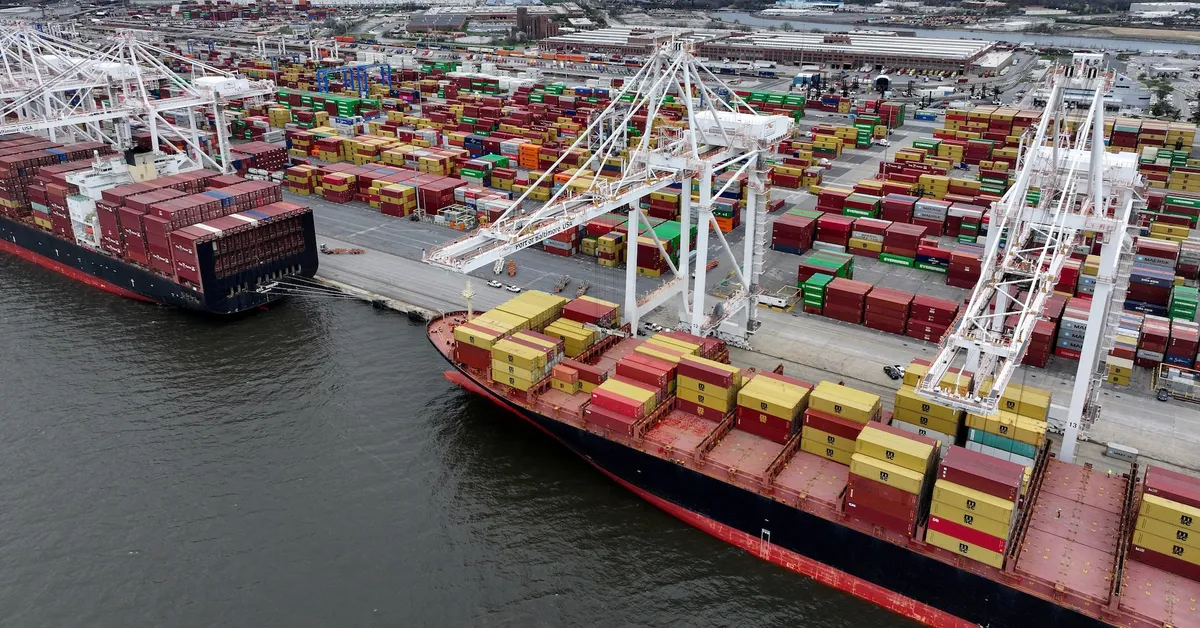
On April 3, 2023, U.S. trade tariffs were announced, raising concerns about their potential impact on a world economy that is still struggling to recover from the post-pandemic inflation surge. The global economy, already weighed down by record debt and geopolitical uncertainty, is at a critical juncture. Depending on the actions taken by President Donald Trump and other world leaders, this could mark a significant turning point for the globalized economic system, which has historically relied on the strength and reliability of the United States as its largest component.
Takahide Kiuchi, chief economist at Nomura Research Institute, warned that Trump's tariffs pose a significant threat to the global free trade order that the United States has led since World War II. In the coming months, the primary effects of these new tariffs will likely manifest as price increases, which could dampen demand for products across the globe. Antonio Fatas, a macroeconomist at INSEAD, expressed concerns that these developments could drive both the U.S. and global economies towards poorer performance and increased uncertainty, potentially leading to what he described as a global recession.
During a speech in the White House Rose Garden, President Trump revealed plans to impose a 10% baseline tariff on all imports, alongside significantly higher duties on major trading partners—34% on China and 20% on the European Union. As a result of these new global levies, the U.S. tariff rate on all imports surged to 22%, a level not seen since 1910, up from just 2.5% in 2024, according to Olu Sonola, head of U.S. economic research at Fitch Ratings. He described this development as a game changer for both the U.S. and global economies, predicting that many countries could find themselves in a recession.
IMF Managing Director Kristalina Georgieva recently stated that while she does not foresee a global recession immediately, there is likely to be a downward adjustment to the Fund's 2025 forecast of 3.3% global growth. The impact of the tariffs will vary widely across national economies, with rates ranging from 10% for the UK to as high as 49% for Cambodia. Should a broader trade war ensue, the repercussions could be severe, particularly for producers like China, who may struggle to find new markets amidst declining consumer demand worldwide.
Barry Eichengreen, a professor of economics and political science at the University of California, Berkeley, emphasized that the effects of the tariffs will not be contained within the borders of the United States. Given the interconnected nature of the global economy, what happens in the U.S. will undoubtedly have ripple effects worldwide.
The implications of these tariffs extend to policymakers in central banks and governments, with potential disruptions to supply chains that have historically helped keep consumer prices stable. This situation could lead to a world in which inflation rates exceed the 2% target currently deemed manageable by central bankers. This trend may complicate monetary policy decisions for the Bank of Japan, which might face pressure to combat rising inflation with interest rate hikes, even as its export-driven economy feels the impact of U.S. tariffs.
Countries such as Japan, facing a 24% reciprocal tariff, and South Korea with a 25% rate, have already indicated plans to implement emergency measures to support businesses affected by these levies. With weaker economic growth, governments may find it increasingly difficult to manage the world's staggering $318 trillion debt and allocate funds for essential budget priorities, including defense spending, climate action, and social welfare.
There are concerns that these tariffs may not fulfill Trump's stated goal of encouraging investment in U.S. manufacturing, particularly given the existing domestic labor shortages. Analysts speculate that the administration may explore alternative strategies to address the U.S. trade deficit, potentially involving rebalancing foreign exchange rates to favor U.S. exporters. Freya Beamish, chief economist at TS Lombard, warned that such actions could threaten the dollar's status as the world's reserve currency — a scenario few anticipate, as there are currently no viable alternatives to the dollar.
In light of these developments, European Central Bank President Christine Lagarde urged Europe to act swiftly and implement economic reforms to remain competitive in what she termed an "inverted world." She reflected on the benefits derived from a U.S.-led hegemonic order that embraced a multilateral, rules-based economic framework, contrasting it with today's reality of fragmentation and uncertainty.
The global economy stands at a critical juncture, and the repercussions of these new tariffs will be felt far and wide, emphasizing the need for adaptive strategies and policies that can navigate the evolving landscape of international trade.